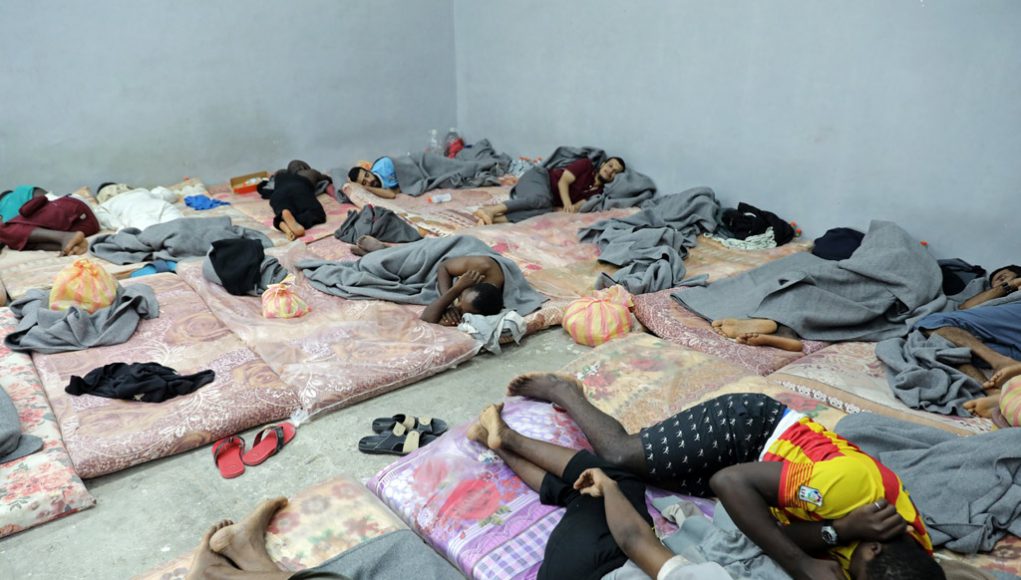 There have been many posts on social media and other news outlets regarding the slave trades currently happening in Libya, Africa. Libya’s shore, sitting just over 300 miles from Italy and other european countries, has become the setting off point for migrants desperate to get to Europe.
There have been many posts on social media and other news outlets regarding the slave trades currently happening in Libya, Africa. Libya’s shore, sitting just over 300 miles from Italy and other european countries, has become the setting off point for migrants desperate to get to Europe.
According to CNN, auctions have been discovered in nine locations in Libya, most of which are located in the northern parts of the country such as Zuwara, Sabratah, Kabaw Castelverde and more. CNN’s sources believe there to be more locations yet to be discovered. Images and videos have been posted of auctions of migrants, some being sold into literal slavery for as little as $400. Males are sold as slave workers and females are forced into becoming sex workers.
This new danger of being sold into slavery is another layer of danger in an already-treacherous journey. Every year, thousands of migrants take what’s known as the “back road,” one of the world’s most dangerous routes, to flee their countries. Most of these migrants leave their countries due to lack of employment, opportunities, and other contributing factors. And every year, thousand of them die in the waters on their journey to a “better life.” This year alone, an estimate of over 3,000 migrants have lost their lives in the mediterranean sea trying to get to europe.
“Everyone here is very shocked, scared and angry that this is happening,” said Maimuna Touray, who lives in Gambia in West Africa, where many of the migrants originate. She mentioned that the Gambian embassy is sending flights to Libya to get its citizens back from the detention centers where they’re being held.
When it come to this dangerous and risky journey, there’s no age or gender barrier. Touray said personally knows one woman in her late 30s and a man just 19 years old who died attempting the trip.
But are they really dead? She explained that people are wondering if the people who have “died” while taking the backroad are actually dead.
“There’s a chance that these people are being held in illegal detention centers and we know nothing about it,” she continued. “Even women are now taking the back road, a lot of them.”
Many believe that migrants are often kidnapped in transit. The kidnappers then call their family and ask for ransom money, and if their family isn’t able to pay, they’re sold off as a slaves.
“People in Western African nations are aware of the activities and less people are taking the back road now, and with this new information, people are scared to go because of what’s happening in Libya,” Touray said.
Racism and prejudice plays a part in why this is happening. It is believed that light-skinned Libyans and arabs living in Libya look down on darker-skinned libyans and other Africans resulting in this inhumane activities.
The United Nations Security Council on Thursday formally condemned the slave trade. The Libyan ambassador promised to order further investigation on the cause, adding that if the videos posted online regarding the slave trades are true, those criminals will be charged and prosecuted by law.
Libya has had a history of civil wars and violence for the past decade, with rebels trying to overthrow the government and gain control of the northern African nation. Back in 2011, Libyans believe their problems was a result of their former and late ruler Muammar al-Gaddafi. And with the help of the U.S. and other countries in the NATO, Gaddafi was overthrown and murdered in the process. Recent events make some wonder whether post-Gaddafi Libya might be worse.










